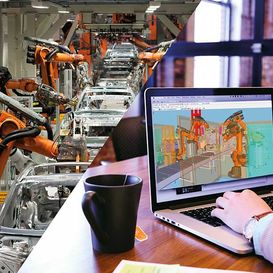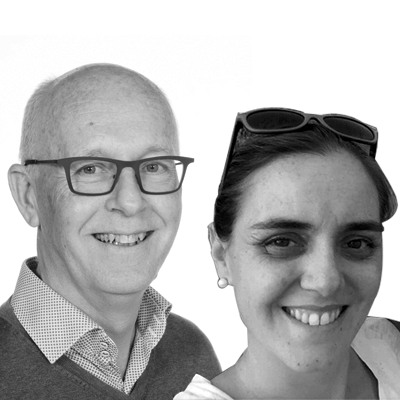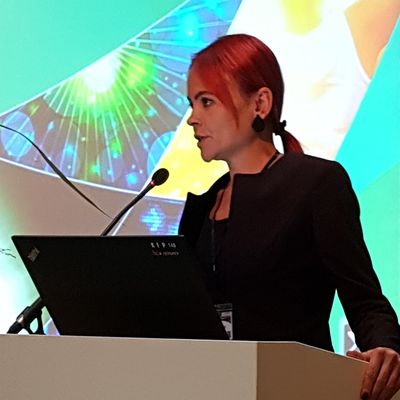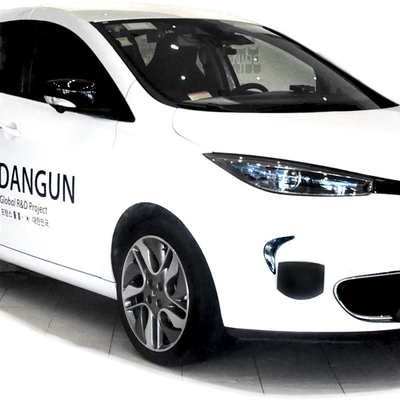Country focus on Germany
Ready to meet future challenge
The importance of the ICT sector, along with its generic and service technologies in German industry, is evident from the 87,500 companies operating in the field of information technology, providing 715,000 jobs. Dr Herbert Zeisel, Head of the Directorate of Research for Digital Transformation at the Federal Ministry of Education and Research, and German representative on the ITEA Directors Committee, takes time out to explain the extent to which digitalisation affects every aspect of our personal lives and the economy. And the need for many more companies to deal with digital and information technologies if they want to be able to meet future challenges.
Vitality of industry and society
"Many companies currently involved in digital transformation are reporting increased orders," Zeisel says, "but, at the same time, they are scouting around for qualified staff to meet their digital objectives. I am afraid we may not be able to devote sufficient attention and resources for the necessary digital transformation of industry and administration. This is where I see a key role for the Federal Ministry of Education and Research (BMBF). We must cooperate to identify the areas which may help us secure the future vitality of industry and society. For example, we are still not sufficiently prepared for the challenges of the platform economy in the industrial sector."
Focus on Artificial Intelligence
"A focus of our current work is on Artificial Intelligence (AI). I am expecting a significant increase in the use of AI tools by the ICT industry, particularly in the area of software- intensive systems. Embedded and cyber- physical systems will in future rely more strongly on AI than today. This involves new challenges with regard to the safety and reliability of these systems. I believe the German Research Centre for Artificial Intelligence (DFKI) is doing excellent and successful work as a software lab." With the recent launch of the High-Tech Strategy 2025 by the German Federal Government, which highlights the software- intensive field of AI among the key technologies, innovative solutions will be applied to address the challenges which Germany and Europe are facing in the areas of health, climate protection, energy supply, mobility, less developed regions and security. "Many of these innovations will be software- driven," Zeisel explains. "Advanced software technology ensures that software is safe and efficient. This means that we will mainly use Artificial Intelligence and software technology to support the further development of software innovations."
Digital expertise and technology
He continues. "We are closely monitoring current developments in Industrie 4.0 and Artificial Intelligence in particular. We consider these to be crucial elements in ensuring the future of German industry. Our research programmes, networks and platforms aim to directly help corporate practice and customers build and develop digital expertise and technology. Industries which are particularly successful in Germany will need more software innovations in future. We have long been aware of this need and already launched a major research programme for software innovation in the early 2000s." It was at about the same time that Germany started its involvement in ITEA, which continues to the present. "We are supporting embedded systems, software technologies and open source developments in particular. In addition, we recently launched direct support for the highly creative scene of freelance software developers. We aim to include our various activities in a 'Professionalisation Programme' that will cover the entire range from staff training and the application of AI methods for software- intensive systems to support for an innovative software industry."
Flexible nature
Digitalisation affects every aspect of our personal lives and the economy
Digitalisation affects every aspect of our personal lives and the economy
"EUREKA adds the major aspect of international cooperation to our national strategy in application-oriented research. Above all, we appreciate its flexible nature. In addition, ITEA provides a flexible framework for research and development for innovative software-intensive systems." In this way ITEA provides a perfect match for the objectives of the BMBF. "Large companies are involved as providers of requirements and small companies as developers in most research projects. A good consortium also includes universities and research institutions which combine their basic and transfer research with practical industrial requirements. Ideally, research projects supported under ITEA cover the entire value chain from research and development to application. We support the different partners in a research project in accordance with the role they play." The role played by SMEs in this respect is significant. "For example, SMEs accounted for more than 60% of all the companies funded by the BMBF in the area of software research in 2017. This is an outstanding percentage compared to other research areas."
Other articles
Use the arrows to view more articles

Editorial
Fopke Klok

Country focus: Germany
Ready to meet future challenges

EKS InTec
Virtual commissioning and digital shadows

20 years of ITEA: The changing of the guard in the ITEA Steering Group
Double interview with Ronald Begeer and Maria de Álvaro Torán

Community Talk with: Cigdem Cavdaroglu
Çiğdem Çavdaroğlu

End-user happiness DANGUN
DANGUN

SME in the spotlight: BEIA
A strong Romanian presence in the ITEA landscape

PO Days 2018
Sweden

20 years of ITEA SotAs: Getting ready for the future
Life-changing SotAs

